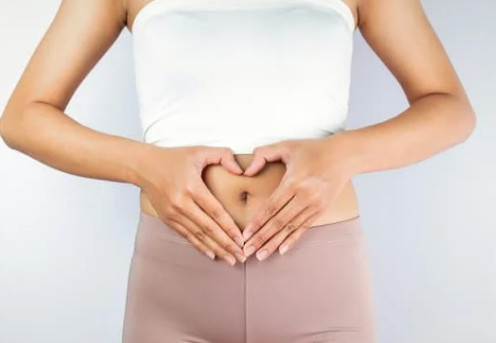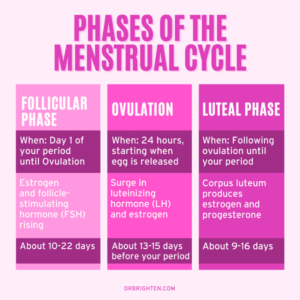Nutrition & Your Cycle

Ladies, this one is for you.
It’s that time of the month and it’s not all in your head. That increased appetite and sluggish energy is your body’s hormones at work. Don’t feel bad about it! Instead, learn how to both give yourself some grace, and work WITH your body.
Nutrition AND Your Cycle
There are 4 phases to your menstrual cycle. These are known as the Menstrual phase, the Follicular phase, the Ovulatory phase, and the Luteal phase. Ever notice how the days leading up to, and while on your menses, you feel more tired and sometimes even more hungry? In the luteal phase, your testosterone is starting to decline, and the body produces progesterone. Progesterone is what causes your body to start to want to wind down. This is when symptoms known as ‘PMS’ can start, including bloating, breast tenderness, anxiety, headaches, and the desire for carb-heavy comfort foods. Once your period begins, this is when energy is the lowest. This is from the drop in progesterone. It is important to understand this cycle and work with your body in all ways, including form of exercise, nutrition, and self-care.
Let’s talk about what to eat before, during, and after your period to help manage or prevent PMS, period pain, irregular cycles, and infertility.
BEFORE (Luteal Phase) – Focus on easy to digest, nutritious and blood sugar balancing meals. Include complex carbohydrates like sweet potatoes, beans, or legumes. Eat fish, leafy greens, and fruit. Drink lots of water. Avoid spicy, greasy, oily, salty, and sweet foods because these foods can contribute to inflammation and are hard to digest and therefore can disrupt the harmony in your menstrual cycle. Your body may desire more calories as your metabolism speeds up and cortisol levels are higher. Listening to your body’s need for more calories is ok, but don’t see this as a cue to overindulge on sugar and processed foods, because it may leave you feeling even more sluggish and moody. Aim for balance. DIM is a phytonutrient found in cruciferous vegetables including broccoli, Brussel sprouts, cabbage, cauliflower, and kale. It supports that activity of enzymes that improve estrogen metabolism. DIM can also be taken as a supplement, but why not make a big, beautiful salad with these ingredients?
DURING – It is important during this phase to drinks lots of water to reduce chances of getting headaches related to dehydration. Fruit can be another source of hydration. Iron levels can dip during this time so eat leafy greens such as kale and spinach to boost iron and magnesium levels. Chicken and fish are other good sources of iron. Turmeric and ginger are supportive herbs which have anti-inflammatory effects. Fish, nuts, and flax are excellent sources of omega-3 fatty acids. Quinoa, lentils, and beans provide protein, magnesium, fiber, and iron and can help you feel satisfied and full longer. That dark chocolate you desire,…have it, in moderation….as it provides iron and magnesium. But I am talking about the antioxidant rich, dark chocolate, not the sugar loaded, refined stuff. Magnesium deficiencies are associated with more severe PMS symptoms. Avoid sugar, salt, coffee, spicy foods, red meat, and alcohol.
Certain yoga poses can also help to relieve cramps. Hot compresses, massage and gentle exercise can also be supportive during this time. Honor your body’s need for rest and restoration. This is not the time to do high intense workouts, but rather more supportive gentle exercise including walking and yoga.
AFTER (Follicular Phase, 7-10 days after period ends) – Metabolism is slower during this phase, but energy is better. Include healthy fats like nuts, seeds, eggs, salmon, and avocado. Aim for enough fiber from carbohydrates like cruciferous vegetables, root vegetables, whole grains, legumes, and fruit. A well-rounded diet that includes healthy fats, protein and carbs that provide enough micronutrients is what will support hormone balance and reproductive health. This is also the time to increase your workout intensity and take advantage of that energy.
While I know our cycle can seem like a nuisance and uncomfortable, try to see it as a beautiful process of your body. Because this is true, aim to eat beautiful foods, move beautifully, and treat yourself as the queen that you are.
In health,
Dana Ruch, CNS, MS

